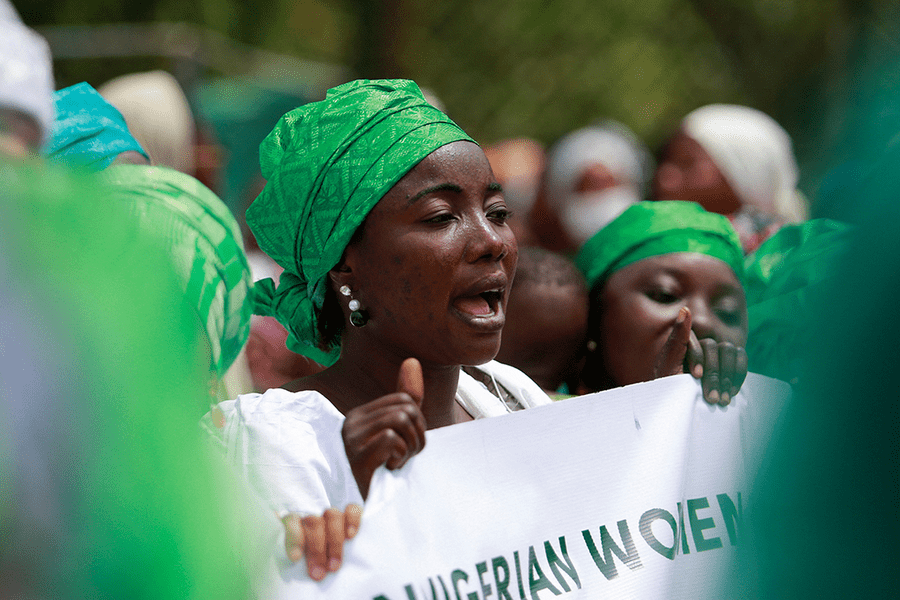BY ABDULKAREEM ABDULLATEEF
AU-EU social safety nets need to be anchored on equitable development by prioritising key areas such as digital inclusion, education, climate action, and dignity. While digital inclusion emphasises an inclusive digital environment, where every citizen has unrestricted access to digital services and opportunities, education is the indispensable tool which equips individuals for civic engagement and economic participation. If incorporated into social safety planning, proper climate action would prove vital in mitigating the incidence of harmful weather, food insecurity, and other consequences of climate change.
Dignity is another crucial element in social safety planning, and the AU-EU partnership can foster dignity by giving priority to the fundamental rights of every group. By acknowledging that these key areas –education, climate action, dignity, and digital inclusion –are intertwined, the partnership can help in building and sustaining well-equipped, inclusive societies.
The roles of youths in the realisation of sustainable social safety systems should never be downplayed. Especially in planning social safety for fragile and displaced communities, the AU-EU partnership must recognise young people’s potential in offering innovative solutions and long-term engagement. Youth integration, which emphasises including youth in social safety planning, would prove beneficial because the young people in conflict-affected communities can not only provide first-hand information about the challenges in the communities, but also offer insight into the specific communal needs.
Advertisement
If allowed active roles in social safety systems, youths –especially those in fragile and displaced communities –can significantly contribute to the design of resilient and responsive social safety nets which can better tackle violence, displacement, and climate-induced disasters. In order to realise the long-term benefits of social equity and inter-generational collaboration, the AU-EU partnership must, therefore, prioritise youth inclusion in the design and implementation of social safety programmes.
In Africa, social safety systems barely cater to some crucial populations such as informal sector workers, digital gig workers, and the youths in conflict-prone communities. Especially in Nigeria, the social protection framework fails to integrate the needs of online freelancers, informal workers, and displaced youths in the implementation of empowerment schemes, emergency cash transfers, and other social safety programmes.
Despite occupying a significant portion of the country’s workforce –a portion believed to be over 80% –the informal workers in Nigeria barely benefit from the social protection framework. This marginalisation sadly affects northeastern Nigeria, where many youths have been displaced by insecurity. Nigeria’s social protection system barely acknowledges the informal sector, thereby keeping online freelancers, conflict-vulnerable youths, and informal workers in a continuous state of marginalisation.
Advertisement
Despite being established with the goal of supporting the country’s vulnerable and poor populations, Nigeria’s National Social Register (NSR) has performed poorly in terms of identifying vulnerable individuals, upholding digital transparency, and prioritising youth-specific support. NSR employs a vague data collection approach, and due to the absence of community oversight and digital transparency, the NSR has failed to accurately document the vulnerable youths in conflict-prone states such as Zamfara and Borno.
This failure makes it difficult for Nigeria’s social safety system to properly identify and respond to the specific needs of numerous vulnerable individuals –unemployed youths, school dropouts, and displaced persons. While Nigeria grapples with the consequences of improper social safety planning, real-world data indicate a worrisome reality as thousands of youths in northeastern Nigeria have come under great insecurity, thereby depriving them of employment opportunities and educational access. The data appears more worrisome as there are more than 10 million out-of-school children in the country. Similarly, poverty in Nigeria has become a great challenge, driving numerous youths out of school.
The AU-EU partnership has a positive implication for Africa; it could be an effective platform for integrating the European Union’s best practices in restructuring Africa’s social protection framework. The expertise of the EU would prove vital for the implementation of youth-inclusive and tech-oriented social safety systems in African countries. The EU’s technological sophistication could be the perfect resource for establishing the data systems that would aid effective documentation of informal workers, displaced youths, and other marginalised populations.
Moreover, the AU-EU partnership must prioritise the potential of Africa’s vibrant youth population by acknowledging that young Africans have the capacity to effectively manage electronic registration systems, social safety databases, emergency cash payment systems, and other platforms required for the sustenance of effective social safety nets. Towards revamping social safety nets in the AU-EU partnership, the essence of youth integration should never be a subject of debate –youth integration is, in fact, the catalyst needed to achieve resilient and impactful AU-EU social safety nets.
Advertisement
Abdulkareem is the executive director of Saving African Youths Dream Initiative (SAYDi) and a European Union youth adviser in Nigeria
Views expressed by contributors are strictly personal and not of TheCable.











